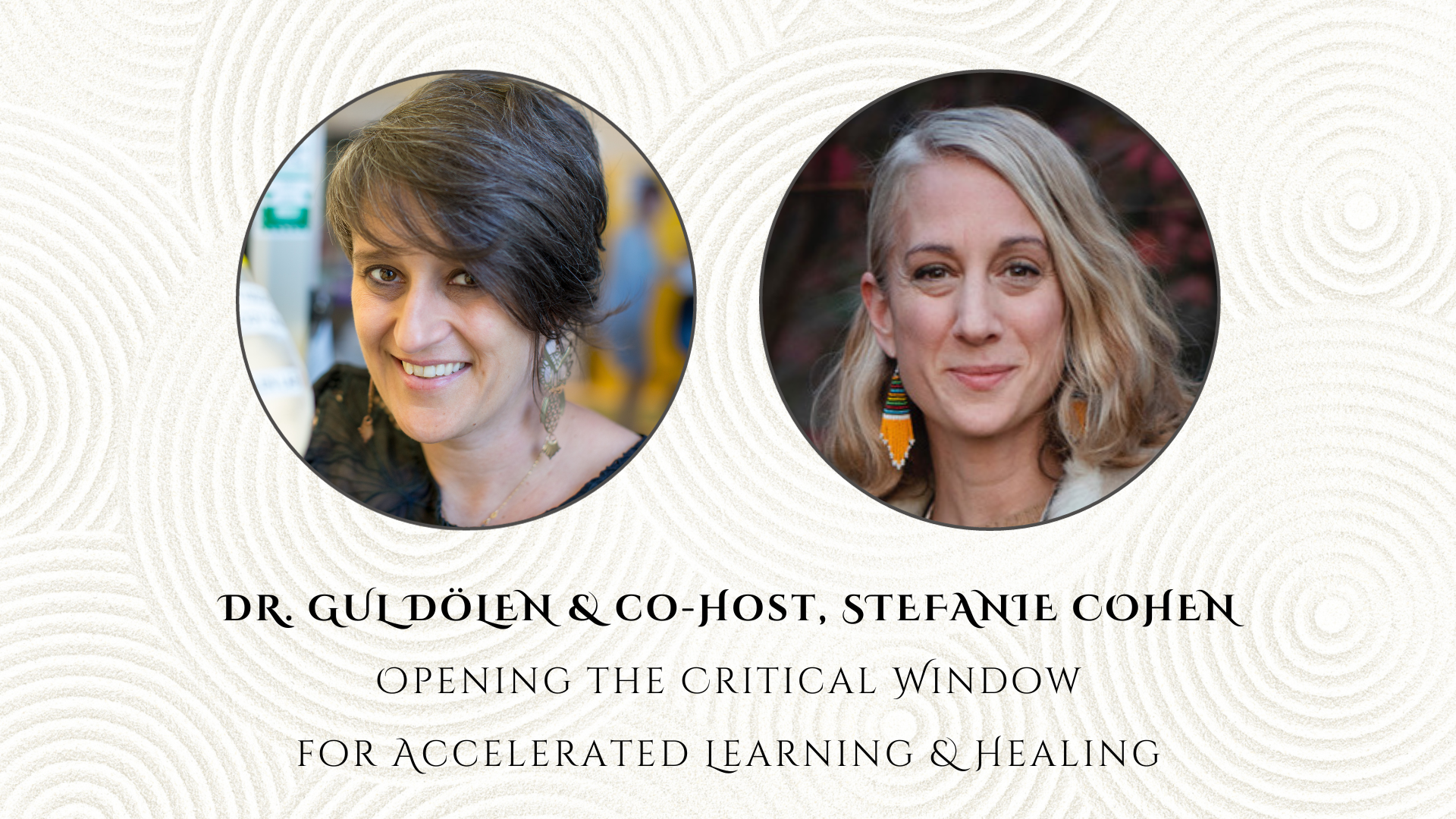Episode 59
Join Michaela Carlin and Stefanie Cohen for a fascinating conversation with neuroscientist, Dr. Dölen as she discusses her research, including her pioneering work with MDMA on octopuses, which has unveiled the possibility of using psychedelics to increase sociability in support of trauma healing, as well as her exploration of how psychedelics can help open “critical periods” of learning. She shares in great depth about the potential of applying such treatments for PTSD, addiction, and even post-stroke motor function recovery.
The discussion also ventures into the possible use of psychedelics in treating genetic autism through reinitiating the social reward learning period. However, a note of caution is emphasized: consistent evidence is needed to prevent possible harm, especially with conditions like schizophrenia and autism. Future studies will concentrate on determining how the duration and intensity of psychedelic effects relate to the longevity of these reopened 'critical periods'.
Dr. Dölen earned her M.D., Ph.D. at Brown University, and the Massachusetts Institute of Technology (MIT), and completed postdoctoral training in the Department of Psychiatry at Stanford University. Dr. Dölen is currently an Associate professor of Neuroscience and Neurology at the Johns Hopkins University, School of Medicine. Her laboratory has discovered a novel mechanism that could account for the broad range of therapeutic applications for which psychedelics are currently being tested. Specifically, the Dolen lab has discovered critical periods can be reopened with the psychedelic drugs like MDMA (Nardou, et al Nature, 2019), LSD, psilocybin, ketamine, and ibogaine (Nardou et al, Nature 2023). Importantly, understanding psychedelics through this framework dramatically expands the scope of disorders that might benefit from adjunct therapy with psychedelics, an approach she has dubbed the PHATHOM project (Psychedelic Healing: Adjunct Therapy Harnessing Opened Malleability).
Stefanie Cohen’s healing path began in an effort to heal herself from a decades-long struggle with anxiety and depression. After years of being on and off various psychotropic medications, she finally gave up and began seeking help from the natural world. In 2015, Stefanie started working with herbal allies in a ceremonial context and experienced the deep healing and vast intelligence the natural world offers.
Eventually, Stefanie returned to a state of peace and began a deep exploration into her own psyche and the true nature of consciousness. She then started working with meditation and contemplation, exploring the teachings of mystics and wisdom traditions. At the same time, studying and experiencing personally various therapeutic modalities such as Hakomi and Internal Family Systems, in which she holds a Level 1 certification. Stefanie also looked to indigenous teachings: apprenticing to soul work through Vision Quests and land-based practices, learning shamanism with Rose Khalsa and sitting in deep meditation with the moon and the mountain. She holds a certificate from the Synthesis Institute’s Psychedelic Practitioner Training, which offers a new paradigm for mental health care, and has completed the Rainbow Bridges School for Evolutionary Guides.
Stefanie brings humility and humor, honesty and compassion, skill and curiosity to her work with clients as she considers it a great honor to be able to work with them in that way.
Episode Highlights
Discussing Dr. Gul's octopus study
Understanding social behaviors in octopuses
Effects of MDMA on octopuses
Implications of the octopus experiment
Exploring the concept of consciousness
Understanding “critical periods” of learning
Psychedelics as a potential master key for opening critical periods
Understanding the effects of MDMA in different contexts
Exploring the potential of psychedelics in enhancing specific skills
The future of psychedelics in treating neuropsychiatric diseases
Challenging the biochemical imbalance model of disease
The evolutionary significance of critical periods
The durations of different psychedelic medicines and their impact on critical periods
The future of psychedelics in personal optimization and biohacking
Controversy surrounding the use of psychedelics in autism treatment
Dr. Gul Dölen
Website: www.dolenlab.org
Stefanie Cohen
Website: www.harveymountainhealing.com
Resources Mentioned in This Episode
Documentary: My Octopus Teacher (2020), directed by Pippa Ehrlich and James Reed
Book: Are You My Mother? by P.D. Eastman
* * * * *
Special thanks to Jeremy Colbert (Taragápe) for the original podcast theme music.
You can find out more about Jeremey’s work here:
taragape.com and @taragape
